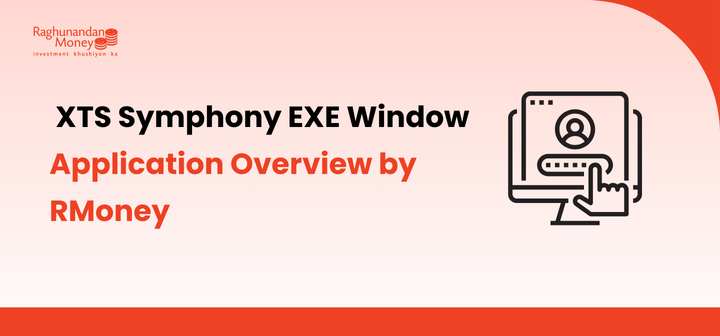Who are Qualified Institutional Buyers (QIBs) in India?
Qualified Institutional Buyers (QIBs) are a significant force in India’s capital markets, comprising sophisticated investors with the financial acumen and resources to navigate complex investment landscapes. These entities, distinguished by their substantial investment capacity and in-depth market knowledge, play a pivotal role in driving capital formation and economic growth.
Who Qualifies as a QIB?
According to the Securities and Exchange Board of India (SEBI), the following entities are classified as QIBs:
- Mutual Funds: Including both open-ended and closed-ended funds.
- Alternative Investment Funds: Such as hedge funds, private equity funds, and venture capital funds.
- Commercial Banks: Including both public and private sector banks.
- Public Financial Institutions: Such as the Industrial Development Bank of India (IDBI) and the Export-Import Bank of India (Exim Bank).
- Foreign Institutional Investors (FIIs): Registered with SEBI.
- Industrial Development Corporations: Established by the government.
- Financial Institutions: Engaged in bilateral and multilateral development activities.
- Provident Funds: With a minimum corpus of Rs. 25 crores.
- Insurance Companies: Authorized by the Insurance Regulatory and Development Authority of India (IRDAI).
- Pension Funds: With a minimum corpus of Rs. 25 crores.
- Insurance Funds: Established and managed by the Indian Army, Air Force, or Navy.
- National Investment Fund.
- Insurance Funds: Established and managed by the Department of Posts, India.
- Non-Banking Financial Companies (NBFCs): Deemed to be of systemic importance.
The Evolution of QIBs in the Indian Capital Markets
The emergence of QIBs as a prominent player in India’s capital markets has been a significant development.
- Reducing Reliance on Foreign Capital: Prior to the rise of QIBs, Indian companies heavily relied on raising capital through American Depository Receipts (ADRs) and Global Depository Receipts (GDRs), increasing their dependence on foreign markets. The introduction of QIBs provided a domestic avenue for companies to access substantial capital.
- Facilitating Corporate Growth: QIBs have played a crucial role in fueling the growth of Indian companies by providing them with access to significant capital for expansion, research and development, and other strategic initiatives.
- Streamlining Capital Raising: By facilitating capital raising from a select group of sophisticated investors, QIBs have streamlined the fundraising process for companies, reducing the need for extensive public offerings and associated costs.
The Significance of QIBs in IPOs
QIBs are a cornerstone of the Indian IPO market. Typically, a substantial portion of the shares offered in an IPO is allocated to QIBs, highlighting their critical role in the success of public offerings. Their participation in IPOs not only provides a significant source of capital for the issuing company but also instills confidence in other investors.
Key Advantages of QIB Investments
- Speed and Efficiency: QIB investments can be executed relatively quickly, often within a few weeks, compared to the more time-consuming process of public offerings.
- Reduced Reliance on Public Markets: Companies can raise significant capital from a limited number of QIBs, reducing their dependence on the volatile public markets.
- Simplified Procedures: QIB investments generally involve less stringent regulatory requirements compared to public offerings, streamlining the fundraising process.
Potential Implications for Retail Investors
While QIBs play a vital role in the capital markets, it is crucial for retail investors to be aware of their impact. Significant investments by QIBs can potentially dilute the ownership stakes of other investors, including retail investors and existing shareholders. Moreover, in cases where QIBs hold substantial stakes, they may exert significant influence on the company’s management and strategic decisions.
Kickstart your investment journey seamlessly with RMoney. Open your Demat Account to invest today!
Disclaimer:
Investments in the securities market are subject to market risks. This content is for educational purposes only and does not constitute financial advice.

Stock Trading Now trade in ₹9 Per Order or ₹ 999 Per Month Plans.
Future & Options Access F&O contracts with advanced tools for hedging and speculation.
Currency Trading Trade in major currency pairs and manage forex exposure efficiently.
Commodity Trading Diversify Trading with MCX & NCDEX by Trading in Gold, Silver, Base Metals, Energy, and Agri Products.
Margin Trading Funding Boost your buying power with upto 5X, Buy now Pay Later
Algo Trading Back test, Paper Trade your logic & Automate your strategies with low-latency APIs.
Trading View Leverage Trading View charts and indicators integrated into your trading platform.
Advanced Options Trading Execute multi-leg option strategies with precision and insights.
Stock Lending & Borrowing Earn passive income by lending stocks securely through SLB.
Foreign Portfolio Investment Enable NRIs and FPIs to invest in Indian markets with ease and compliance.
IPO Invest in upcoming IPOs online with real-time tracking and instant allotment updates.
Direct Mutual Funds 0% Commissions by investing in more than +3500 Direct Mutual Fund Scheme.
Corporate FDRs Earn fixed returns with low-risk investments in high-rated corporate fixed deposits.
Stocks SIPs Build long-term wealth with systematic investment plans in top-performing stocks.
Bonds & NCDs Access secure, fixed-income investments through government and corporate bond offerings.
Depository Services Safely hold and manage your securities with seamless Demat and DP services with CDSL.
Journey Tracing our growth and milestones over time.
Mission & Vision Guided by purpose, driven by long-term vision.
Why RMoney Platform Smart, reliable platform for all investors' needs.
Management Experienced leadership driving strategic financial excellence.
Credentials Certified expertise with trusted industry recognition.
Press Release Latest company news, updates, and announcements.
Testimonials Real client stories sharing their success journeys.
7 Reasons to Invest Top benefits that make investing with us smart.
SEBI Registered Research Trusted insights backed by SEBI-compliant research.
Our Technology Advanced tools enabling efficient online trading.
Calculators Access a suite of smart tools to plan trades, margins, and returns effectively.
Margin Calculator Instantly check margin requirements for intraday and delivery trades.
MTF Calculator Calculate MTF funding cost upfront to ensure full transparency before placing a trade.
Brokerage Calculator Know your exact brokerage charges before placing any trade.
Market Place Explore curated investment products and trading tools in one convenient hub.
RMoney Gyan Enhance your market knowledge with expert blogs, videos, and tutorials.
Performance Tracker Track our research performance with full transparency using our performance tracker.
Feedback Share your suggestions or concerns to help us improve your experience.
Downloads Access important forms, software, and documents in one place.
Locate Us Find the nearest RMoney branch or service center quickly.
Escalation Matrix Resolve issues faster with our structured support escalation process.
Back Office Log in to view trade reports, ledger, and portfolio statements anytime.
Account Modification Update personal or bank details linked to your trading account.
Fund Transfer Transfer funds instantly online with quick limit updation to your trading account.
Bank Details View our registered bank account details for seamless transactions by NEFT, RTGS or IMPS.
How to Apply IPO Step-by-step guide to apply for IPOs using your trading account.
RMoney Quick Mobile App Trade on-the-go with our all-in-one mobile trading app.
RMoney Quick login Quickly access your trading account through the RMoney Quick web-based trading.
RMoney Rocket Web Version Experience powerful web-based trading with advanced tools for algo traders.
RMoney Rocket Mobile Version Trade anytime, anywhere with our feature-rich mobile trading platform.




















